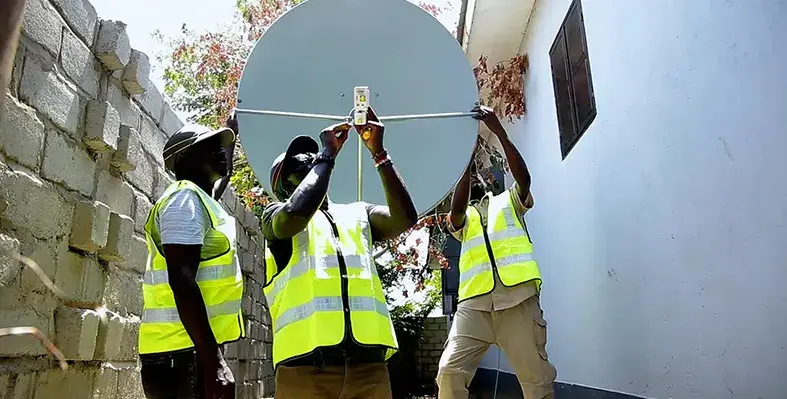
This initiative utilises the Tianqi Low Earth Orbit (LEO) satellite constellation to deliver advanced industrial connectivity across multiple sectors
Q-KON has signed a strategic trilateral partnership with Beijing Guodian High-Tech Technology Co., Ltd. (Guodian Gaoke) and China StarWin Science & Technology Co., Ltd. (StarWin) to introduce next-generation Internet of Things (IoT) services in South Africa
This initiative utilises the Tianqi Low Earth Orbit (LEO) satellite constellation to deliver advanced industrial connectivity across multiple sectors.
As part of the agreement, Q-KON will serve as the authorised provider for Tianqi-based IoT solutions in South Africa, leveraging its extensive local market expertise and distribution network. Guodian Gaoke will supply the LEO satellite constellation and related systems, while StarWin will provide certified ground terminals to ensure compliance with South African technical and regulatory standards.
Driving digital transformation in South Africa
The collaboration represents a significant international partnership in aerospace, combining advanced Chinese satellite technologies with local market knowledge. It aims to support South Africa’s national digital strategy while driving industrial modernisation, economic growth, and inclusive development.
Dr Dawie de Wet, CEO of Q-KON, said, “This strategic alliance marks a significant milestone in our quest to service the African market through the application of leading satellite technologies by expanding the Twoobii portfolio to include an IoT service. Q-KON has always been committed to providing robust and relevant connectivity solutions, and our partnership with Guodian Gaoke and StarWin allows us to expand this commitment into the industrial IoT area.”
The Tianqi LEO constellation is designed for low-power, reliable communications, offering industrial-grade connectivity for sectors including mining, transport, agriculture, and utilities. The system enables real-time monitoring, automation, and data management for businesses and government agencies.
Sector applications and benefits
Amelia, chief operating officer & co-founder of StarWin, highlighted IoT’s role in addressing South Africa’s digital divide, a key challenge to economic growth.
“During its G20 Digital Economy Working Group presidency, the South African government positioned digital transformation as a core national strategy with clearly defined development goals. Within this framework, IoT is recognised as a pivotal technology for transforming traditional industries and has been deeply integrated into key sectors such as agriculture and manufacturing,” she said.
By enabling precision management and automation, these IoT solutions are expected to enhance the competitiveness of South African products globally, support economic complexity, and create new employment opportunities in industrial IoT.
Zheng, vice-president of Guodian Gaoke, added, “This tripartite cooperation marks the Tianqi Constellation’s first project in Africa. Together, we will integrate advanced satellite IoT technologies with local industry to drive digital applications in forestry, power management, logistics, marine operations, and disaster prevention.”
The partnership exemplifies a co-creation model, combining technology with local market insight. It sets a benchmark for future international satellite IoT collaborations and represents a key step in accelerating South Africa’s digital industrial transformation, strengthening the country’s leadership in space-based technologies.

























